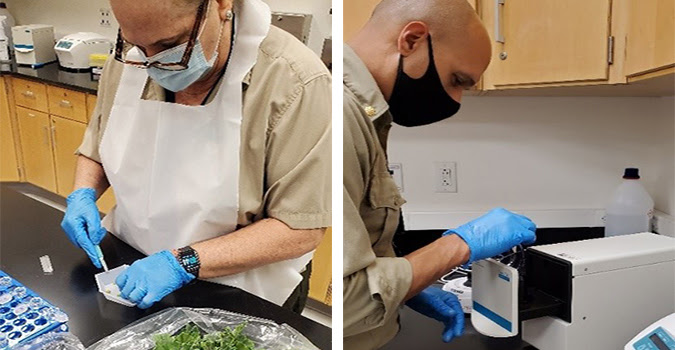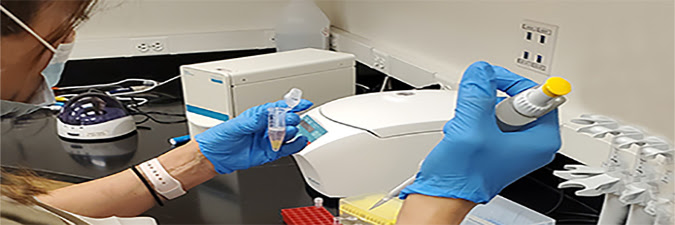Nov 17, 2021APHIS deploys high-tech tool to keep Ralstonia out of US
The USDA’s Animal and Plant Health Inspection Service (APHIS) has deployed a new, high-tech tool to help protect U.S. nursery and specialty crop growers from a disease-causing microbe called Ralstonia solanacearum.
Animal and Plant Health Inspection Service’s Plant Protection and Quarantine (PPQ) program is now using molecular diagnostics (MDx) at its plant inspection stations to rapidly detect R. solanacearum on imported geranium (Pelargonium) plant cuttings. PPQ developed this extra level of protection following the detection of R. solanacearum in April 2020, which triggered an emergency response in 44 states involving 650 nurseries. PPQ successfully eradicated R. solancearum from the United States just two months later.
Race 3 biovar 2 of R. solanacearum affects a wide range of hosts, and geranium plants are a major one. It is considered a “USDA Select Agent” under the Agriculture Bioterrorism Protection Act of 2002 because of its cold tolerance and potential to pose a severe threat to the domestic production of valuable crops, most notably potatoes and tomatoes. It can be transmitted through contaminated water, soil, and equipment, or by people’s inadvertent actions, such as transmission from hands and fingernails. Fortunately, it is not harmful to people or animals.
The emergency response in 2020 triggered a temporary shutdown of exports from the originating facility in Guatemala while PPQ officials determined the cause of the introduction. But years before the 2020 response, PPQ had already determined that imported geraniums were a high-risk commodity and candidate for rapid testing for R. solanacearum at PPQ’s plant inspection stations. After over a year of planning, methods validation, technology transfer, stakeholder engagement, and training plant inspection station staff, PPQ began randomly testing geranium plant material from selected shipments imported from APHIS-certified facilities in September 2021.
“Although geranium cuttings come from APHIS-approved offshore growing facilities, they could be infected with the pathogen but show no visible signs of it during visual inspection,” said Molecular Biologist Aaron Kennedy. “That means the tool will help PPQ identify infected asymptomatic plants before they enter the United States, potentially avoiding costly recalls.”
PPQ tested geranium shipments from Guatemala and Mexico during the first week of implementation in late September. All plants tested negative. PPQ coordinated the delivery of each shipment to the plant inspection station with a broker to ensure testing during the morning shift and rapid release of the commodity immediately thereafter, reducing potential downstream impacts to the industry’s supply chains.

Photos: Left — Plant Health Safeguarding Specialist Camelia Munoz collects cuttings at the Miami Plant Inspection Station that will be used for molecular diagnostics testing for R. solanacearum. Right — Supervisory PPQ Officer Joey Saad reaches the end of the testing process.

















